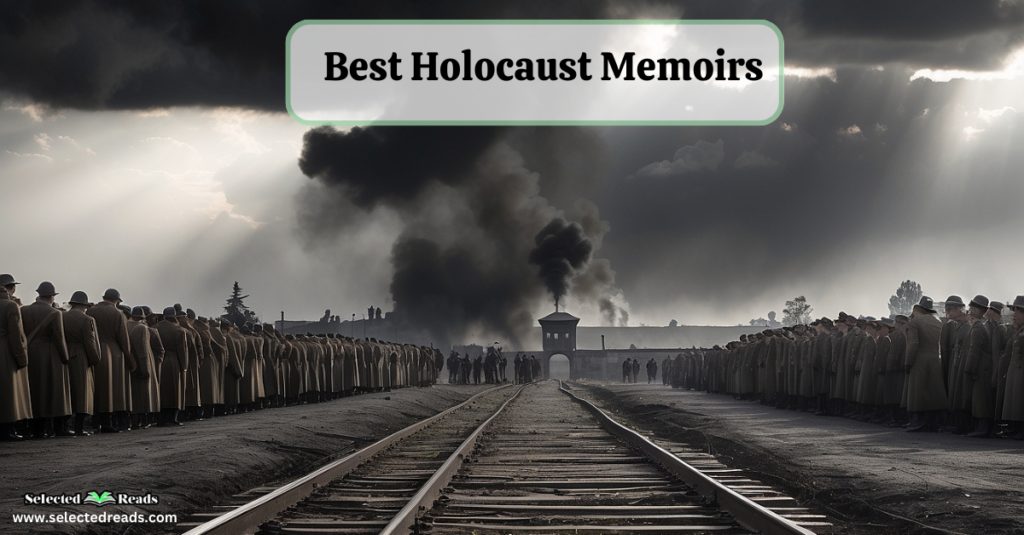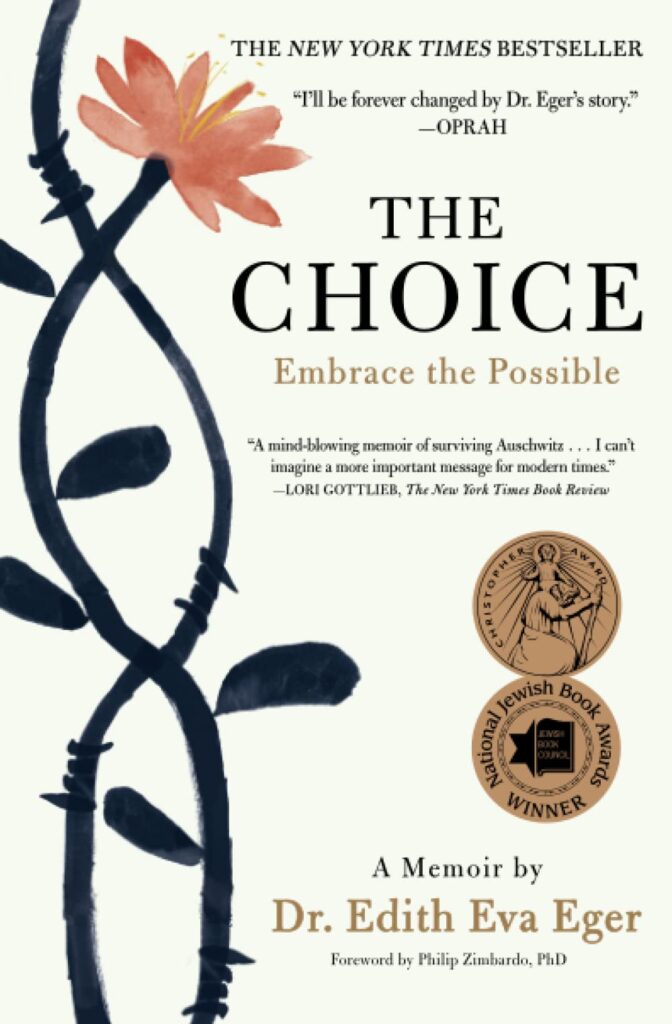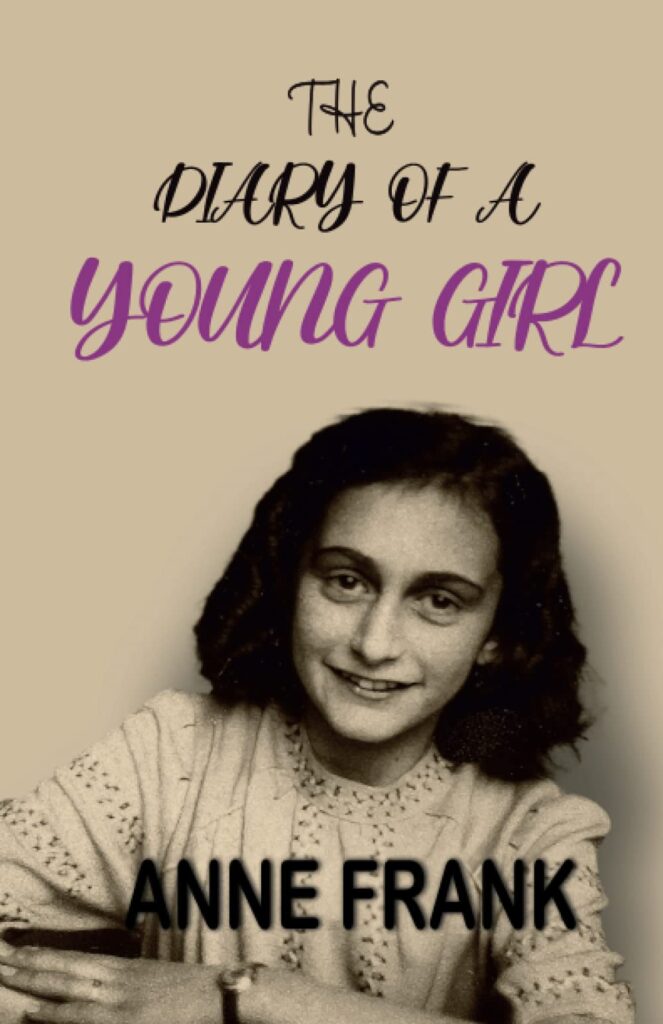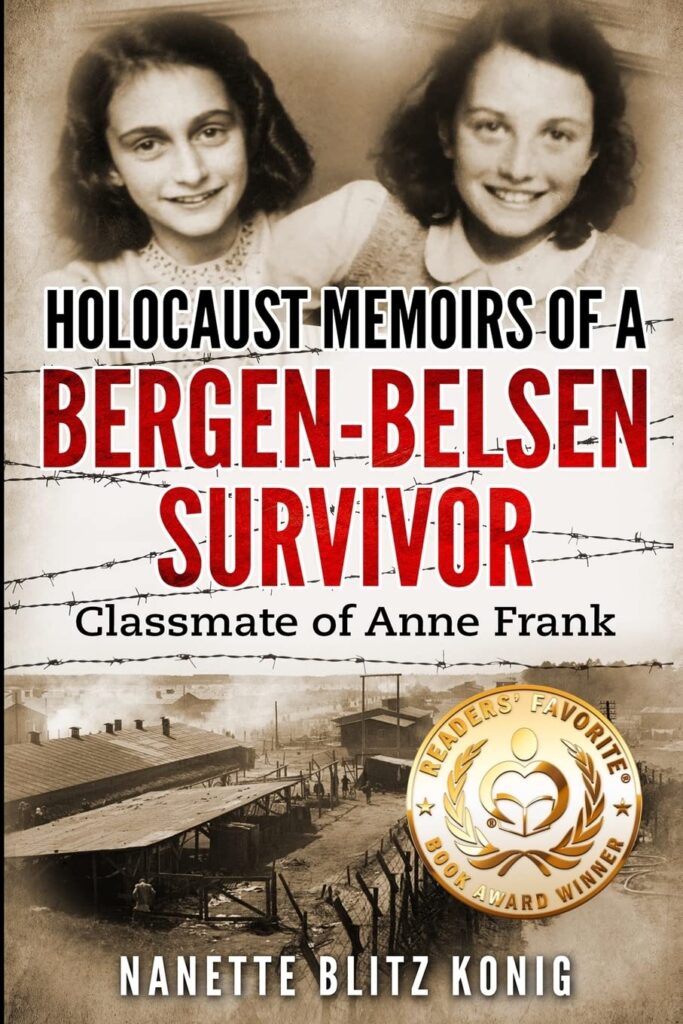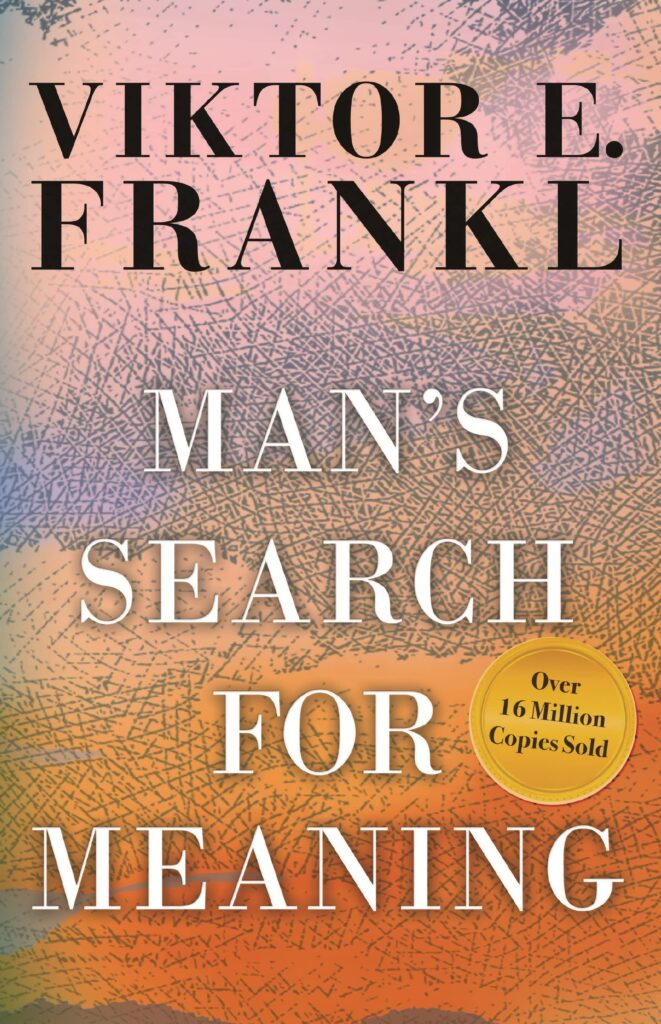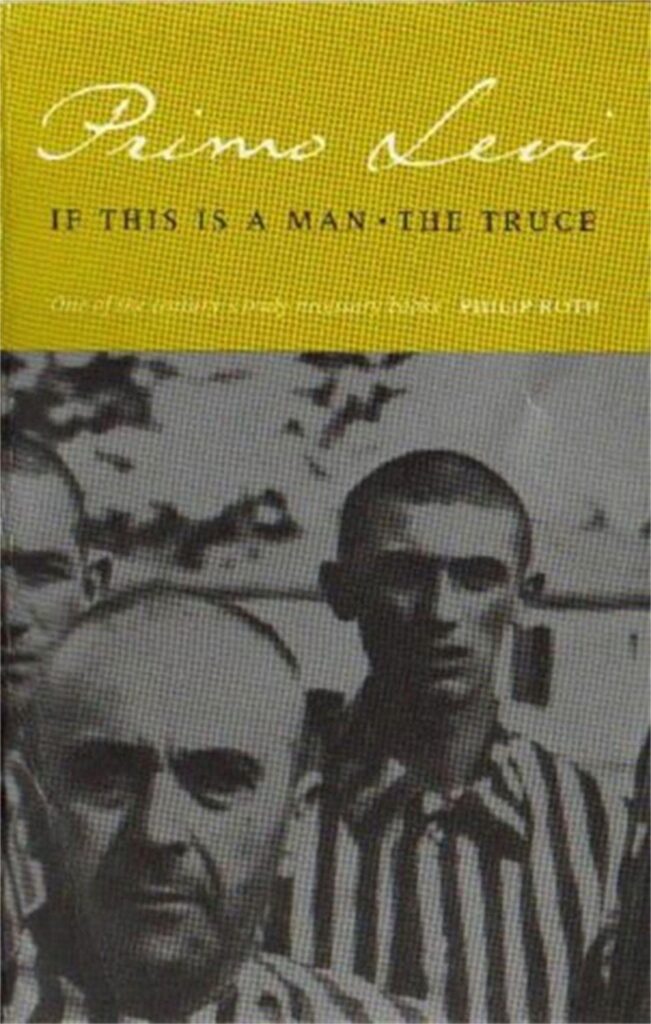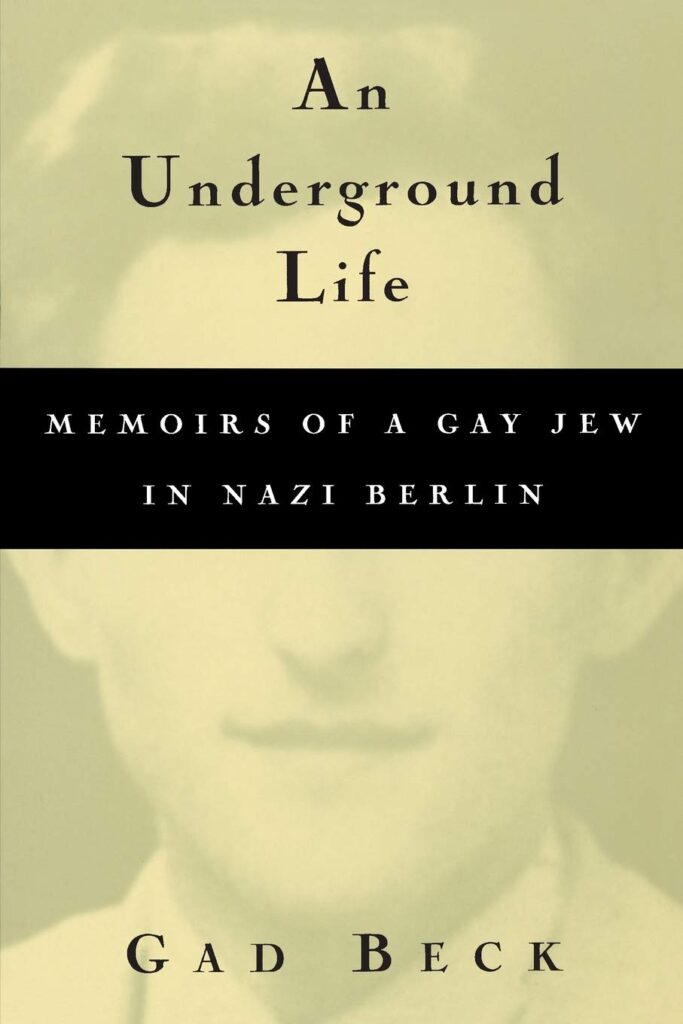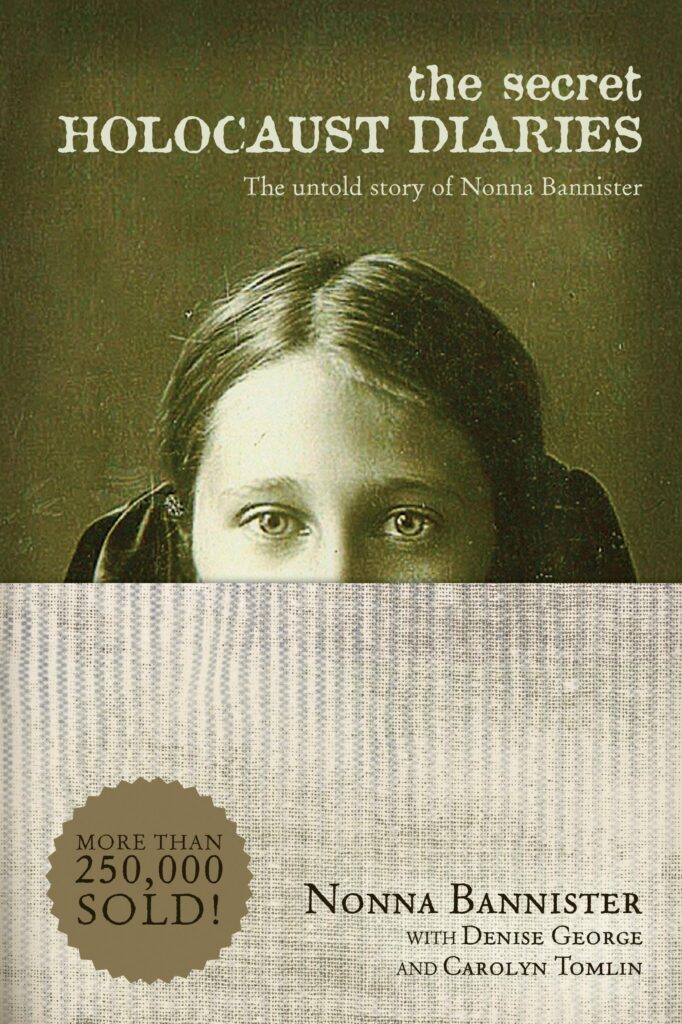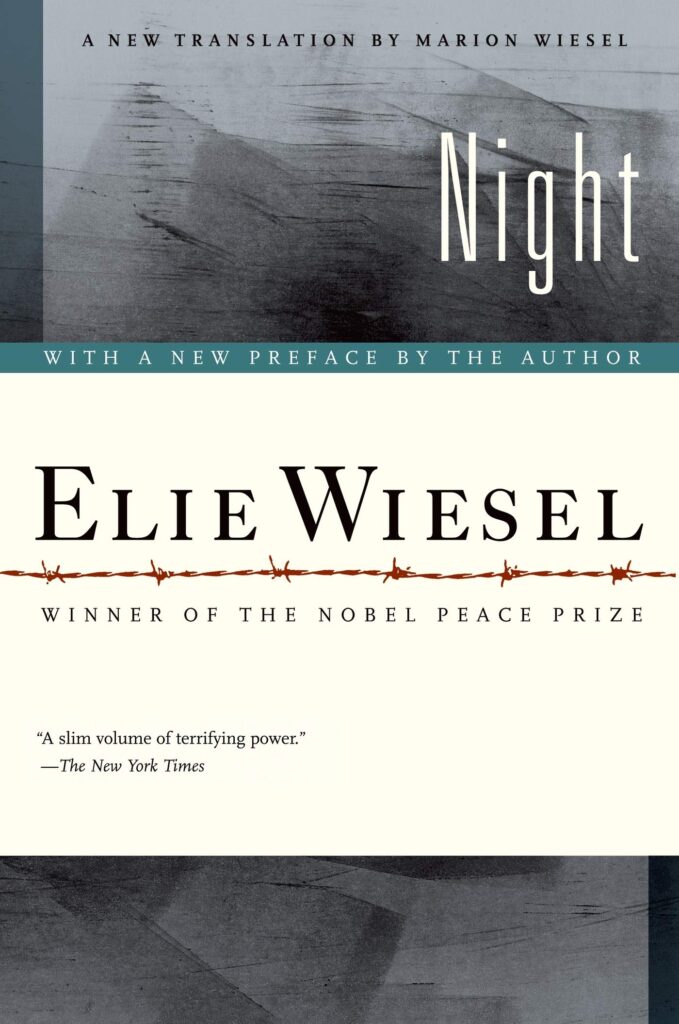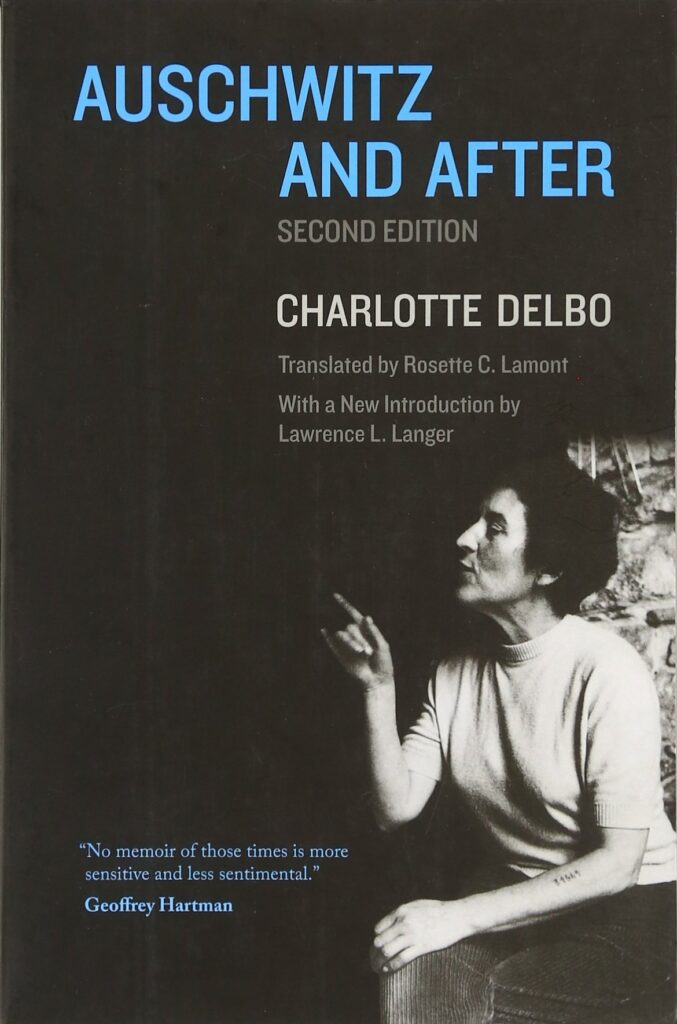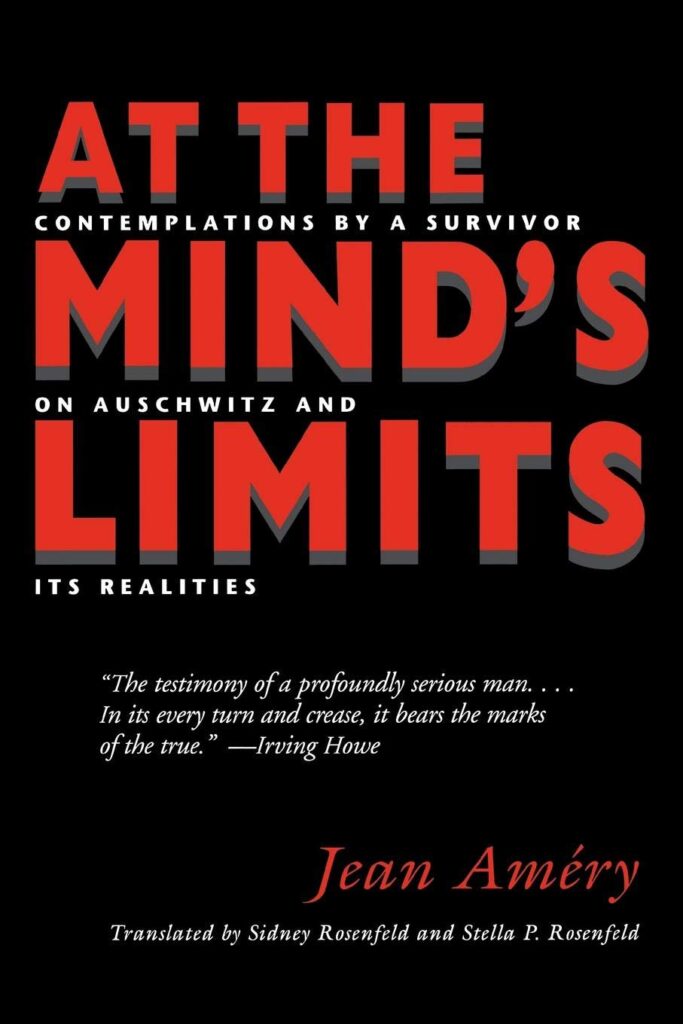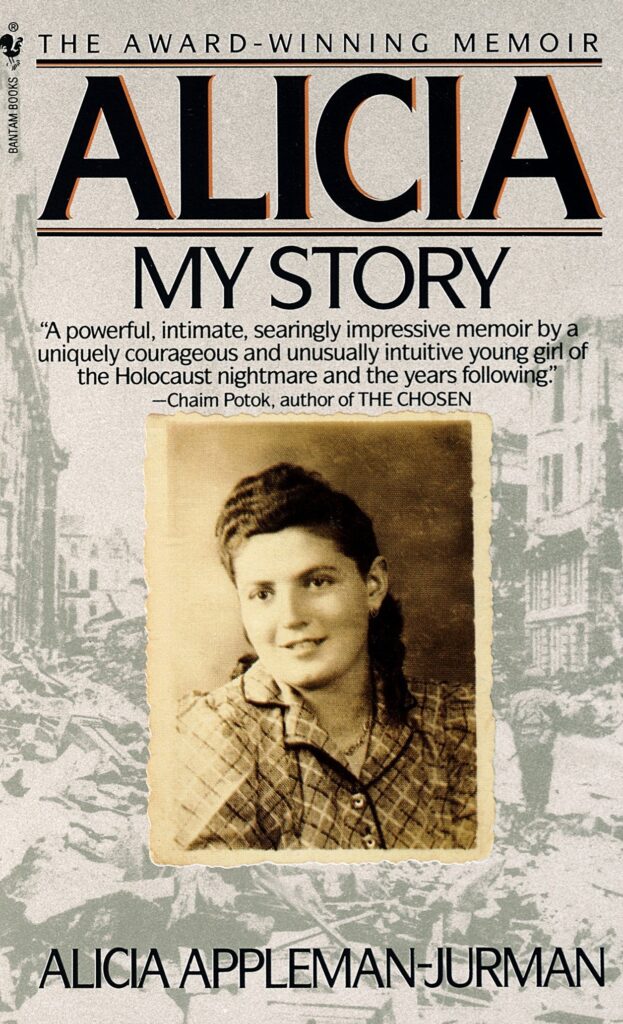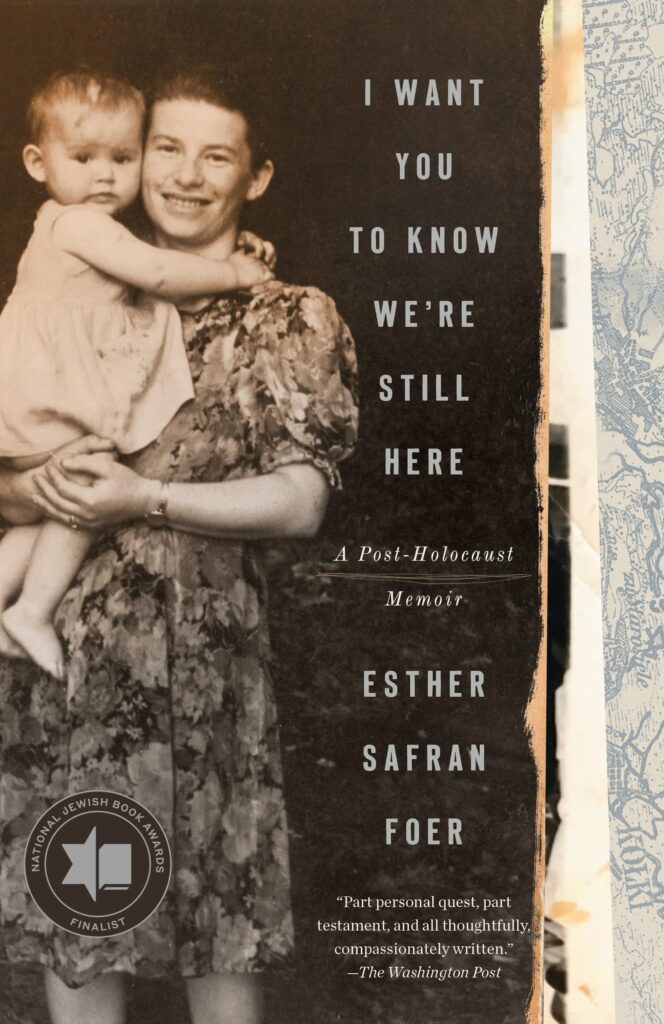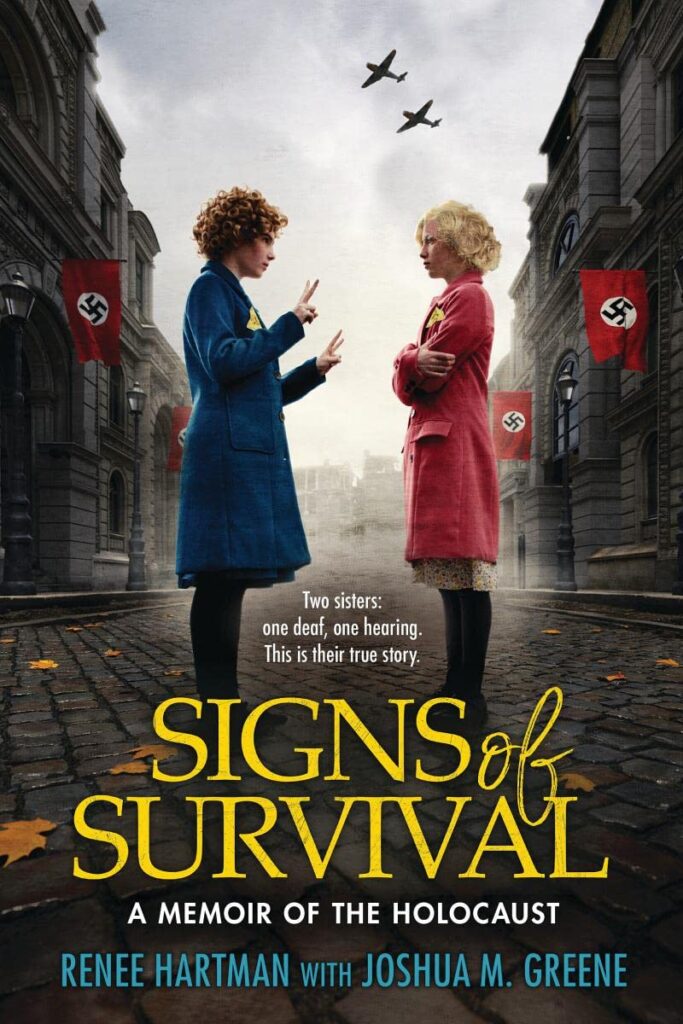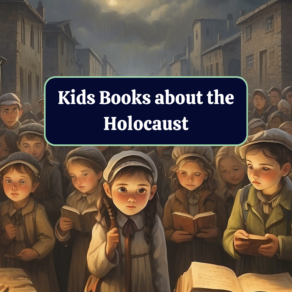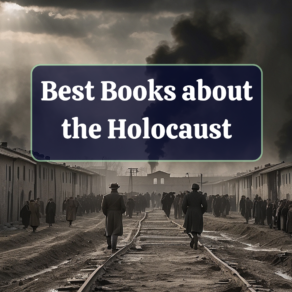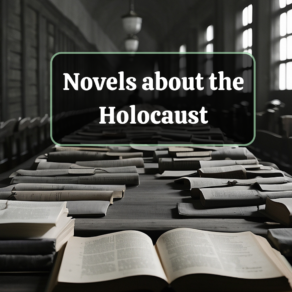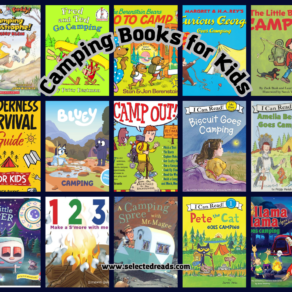The Holocaust is a tragic event that we should never forget.We need to make sure that the memory of this genocide stays intact and a great way to do that is through education. It is our ethical obligation to teach our kids and students about the Holocaust and make them aware of its causes, lest the history repeats itself AGAIN.
Books are excellent medium for Holocaust education and Holocaust memoirs are a particularly powerful way to learn about the Holocaust as they provide vivid, first-hand accounts of life during this dark period. I personally prefer reading a memoir over reading a historical nonfiction. Memoirs are more captivating allowing you to vicariously share the experiences of the author.
Holocaust memoirs are no different. They can be incredibly powerful in helping us to better understand what happened and to have a greater appreciation of their firsthand experience. Holocaust memoirs are also important because they can serve as a reminder of the resilience and strength of the human spirit even in the most difficult situations.
I have done my research, checked several sources, and compiled for you the list below featuring some of the best Holocaust memoirs out there. I invite you to check them out and share with us your feedback.
For more resources on the Holocaust, check out:
- Best Holocaust books for kids
- Best nonfiction Holocaust books
- Best books about Auschwitz concentration camp
- Best novels about the Holocaust
1. The Choice: Embrace the Possible, by Dr. Edith Eva Eger
Dr. Edith Eva Eger’s book, The Choice, is a life-changing story of her personal journey that offers hope and comfort to generations of readers. At the age of sixteen, Edith was sent to Auschwitz, where Nazi officer Dr. Josef Mengele forced her to dance for his amusement and her survival.
Despite being liberated by American troops, Edith suffered from survivor’s guilt and struggled to cope with the horrors of the war for decades until she returned to Auschwitz thirty-five years after it ended.
In her book, Dr. Eger shares how we can become imprisoned in our own minds and ultimately find the key to freedom. By examining her own experiences and those of others, she provides insightful advice on how to heal and forgive the past. Edith’s inspiring story encourages readers to embrace the possible, despite difficult circumstances, and find their own way out of the darkness.
2. The Diary of a Young Girl, by Anne Frank
The Diary of a Young Girl by Anne Frank is an account of her life during the Nazi occupation of Amsterdam. Eight people live in miserable conditions and face hunger, threat of discovery, and other horrors.
Anne’s diary chronicles her close relationship with her father, her lack of daughterly love for her mother, admiration for her sister ‘s intelligence, and closeness with her friend Peter. The book offers a unique self-portrait of Anne as a sensitive young woman who grows up to become thoughtful and learns about the terror of the world.
3. Holocaust Memoirs of a Bergen-Belsen Survivor & Classmate of Anne Frank, by Nanette Blitz Konig
Nanette Blitz Konig’s Holocaust Memoirs tell the story of her incredible survival during World War II, when she and millions of other Jews were imprisoned by the Nazis. She was a classmate of Anne Frank in the Jewish Lyceum of Amsterdam, and they met again at Bergen-Belsen concentration camp shortly before Anne died. Nanette recounts their emotional conversations, discussing the Frank family’s time in hiding and Anne’s experiences in Auschwitz.
Nanette’s memoirs also relate the fight for survival under the cruel conditions of the concentration camp, as well as her battle to recover from starvation and tuberculosis after liberation. She describes her struggle to rebuild her life, marry and start a family.
This remarkable first-hand account of life under Nazi occupation is an important story about humanity and resilience, as told through Nanette Blitz Konig’s powerful memories. Her memoirs provide a unique insight into the Holocaust experience and the strength of individuals in extraordinary circumstances.
4. Man’s Search for Meaning, by Viktor E. Frankl
In Man’s Search for Meaning, Viktor E. Frankl explores the human drive to find meaning in life in spite of the worst adversity. He argues that it is not pleasure that is the primary human drive, but rather the discovery and pursuit of what an individual finds meaningful.
The book has sold over sixteen million copies and been translated into more than fifty languages, making it one of the best biographies ever written. It is a testament to the power of resilience and determination in the face of adversity that continues to inspire generations today.
5. If This Is a Man and The Truce, by Primo Levi
Primo Levi was an unassuming, 20th century chemist whose works stand out as a testament to his moral fortitude and intellectual power. He wrote two distinct works, If This Is a Man and The Truce, both of which detail the horrors he experienced in Nazi concentration camps during World War II.
In these works, he not only remembers the brutality of these camps, but also reflects on what made life both beautiful and bearable in such a seemingly hopeless situation. His writing style is both direct and unassuming, allowing his readers to truly experience the events he describes.
Levi was an incredibly beloved man who had an appreciation of the smallest human moments as well as those that were the most despicable. His legacy is one of strength and courage, as well as a deep understanding of the human condition. He serves as an inspiration to those who seek to cope with the tragedy that life sometimes brings.
6. An Underground Life: Memoirs of a Gay Jew in Nazi Berlin, by Gad Beck, Frank Heibert
An Underground Life: Memoirs of a Gay Jew in Nazi Berlin is an incredible memoir written by Gad Beck and Frank Heibert. The book recounts the story of young Gad Beck, a Jewish homosexual living in Nazi Berlin during the Holocaust.
Despite enduring years of oppression, violence, and terror, Gad remained defiant and resilient and managed to survive the Holocaust. He recounts his experiences and those of other Jews, homosexuals, and members of the underground resistance movement in a candid and heartfelt way.
Gad Beck’s story is filled with many incredible stories of courage, resilience, and love in spite of unimaginable adversity. It speaks to the power of human spirit as well as the importance of standing up for what is right. This powerful and moving memoir is a must-read for anyone interested in learning more about the Holocaust, gay rights, human resilience, and the struggle of minorities in times of hardship.
7. The Secret Holocaust Diaries: The Untold Story of Nonna Bannister, by Denise George Carolyn Tomlin Nonna Bannister
The Secret Holocaust Diaries is a gripping account of one woman’s experience during the Holocaust. Nonna Bannister was born into a family of privilege in Russia, only to be exposed to German labor camps during World War II.
Through her diaries, this book tells the heart-wrenching story of how Nonna Bannister learned to value human life and understand the importance of forgiveness during a time when hatred and violence reigned supreme. This poignant and powerful biography will give readers insight into the unimaginable horrors experienced by those caught in the throes of Nazi Germany.
8. Night, by Elie Wiesel
Night, by Elie Wiesel, is an autobiographical account of the author’s experience in Nazi death camps during World War II. The latest translation of this seminal work by Elie’s wife, Marion Wiesel, gives readers insight into the immense tragedy that befell the Jewish people during this time.
Through his powerful narrative, Wiesel reflects on his own suffering, as well as the collective tragedy of the Holocaust and its enduring effects. He captures the horror and inhumanity of life in the camps, from the relentless physical labor to the daily abuse and brutality that inmates endured.
Night also serves as a testament to human resilience and strength in times of unspeakable darkness. Wiesel poignantly explores the psychological toll of imprisonment and the moral choices that individuals make in extreme circumstances. He reflects on his own faith and identity, including his decision to keep his Jewishness a secret from Nazi officers.
9. Auschwitz and After, by Charlotte Delbo
Charlotte Delbo’s Auschwitz and After is a powerful memoir about her experience of surviving the Holocaust and the aftermath that followed. It serves as a stark reminder of the atrocities committed during World War II and the lasting trauma that lingers with those who were affected by it. The book recounts Delbo’s personal story of survival in Auschwitz, her struggles with hunger and deprivation, and her own process of rebuilding a life after the war.
10. At the Mind’s Limits: Contemplations by a Survivor on Auschwitz and its Realities, by Jean Amery
In ‘At the Mind’s Limits: Contemplations by a Survivor on Auschwitz and its Realities,’ Jean Amery offers a profound and introspective examination of the Holocaust’s unfathomable horrors through a series of autobiographical essays. Amery delves deep into the mental, moral, and physical challenges he faced as a survivor, articulating the struggle to comprehend and articulate the inhuman experiences endured in Auschwitz.
This poignant work not only recounts Amery’s personal journey of survival and resistance but also explores the broader implications of such trauma on identity, memory, and the capacity for forgiveness. Amery’s reflections provide an essential contribution to Holocaust literature, presenting a raw and unflinching look at the psychological scars left by such atrocities, and the ongoing struggle of survivors to make sense of the past while attempting to reclaim their humanity.
11. Alicia: My Story Mass Market, by Alicia Appleman-Jurman
Alicia Appleman-Jurman’s memoir, Alicia: My Story, tells the remarkable story of her childhood in Nazi-occupied Poland during World War II. At thirteen years old, she was forced to flee her home and family after witnessing her mother’s murder at the hands of the Gestapo. She then bravely devoted herself to rescuing other Jews from the Nazis and smuggling them safely to Palestine.
Alicia’s story is a powerful reminder of the courage and resilience of the human spirit in the face of unimaginable hardship. It also serves as an inspiring testament to her unwavering faith in humanity’s capacity for kindness.
12. I Want You to Know We’re Still Here: A Post-Holocaust Memoir, by Esther Safran Foer
I Want You to Know We’re Still Here is a powerful and poignant story of author Esther Safran Foer, who set out to uncover the truth about her father’s past. Growing up in a home where the realities of the Holocaust were never spoken of, she was determined to learn more about what her father endured and how he survived.
Through her journey in Ukraine, Esther discovers a family she never knew existed and learns to mourn the lost generations of her past. She finds solace in being able to honor the memory of those who perished and feel a sense of pride for those who survived.
In this memoir, Esther tells not only her own story but that of her family’s—four generations living in the aftermath of the Holocaust and their commitment to remember those who were lost. It is an inspiring tale of resilience, courage, and hope.
Esther’s Memoir is a powerful reminder of how we must never forget the atrocities of the past, but find ways to honor those affected and celebrate their stories. It is a testament to the beauty that can emerge from tragedy, as well as a reminder of the importance of listening and understanding each other’s histories.
13. Somewhere There Is Still a Sun: A Memoir of the Holocaust, by Michael Gruenbaum
Michael Gruenbaum’s Somewhere There Is Still a Sun is a powerful memoir of his and his family’s experiences during the Holocaust. Michael, his mother, and sister were forced to leave their carefree life in Prague and move into the Jewish Ghetto when the Nazis invaded. They were then deported to the Terezin concentration camp, where Michael was faced with the daily battle of survival.
In Terezin, he encountered unexpected joys as well as unimaginable horrors, and his story is a testament to courage and resilience in the face of tragedy. In order to save his family, Misha had to rely on luck and ingenuity—luck in form of a carefully sewn teddy bear and ingenuity from his mother.
Michael’s story is both heartbreaking and uplifting, as he struggles to find hope in a seemingly hopeless situation—a struggle that has become representative of the entire Holocaust experience. With striking immediacy, the memoir captures not only Michael’s courage but also those of countless others who faced similar fates.
14. Signs of Survival: A Memoir of the Holocaust, by Renee Hartman, Joshua M. Greene
Signs of Survival is an inspiring story of courage, strength and resilience in the face of great adversity. Written by Renee Hartman and Joshua M. Greene, it tells the story of two Jewish sisters living in 1940s Czechoslovakia as the Nazis invade their home.
Renee, being the only one in her family who can hear, must find ways to alert her parents and sister of impending danger. When their parents are tragically taken away, Renee and Herta have no choice but to go on the run in search of safety. Eventually they are caught and sent to Bergen-Belsen concentration camp where they must fight for survival despite illness, death and starvation.
The memoir is an extraordinary account of how sisterhood, courage and love can transcend even the most harrowing conditions. It also serves as a reminder that in times of darkness, we must remember to honor the past and keep our stories alive. By reading this powerful story, generations to come will be given an invaluable perspective on what it takes to survive when the odds are against you.
15. Still Alive: A Holocaust Girlhood Remembered, by Ruth Kluger
Still Alive by Ruth Kluger is an autobiographical account of a young girl’s experience growing up during the Nazi-era in Europe. Ruth Kluger was eleven years old when she and her mother were deported to Theresienstadt concentration camp, where she spent her childhood. She reflects on her experiences, both as a child and an adult, with a raw honesty that refuses to sugarcoat or simplify the truth of what she endured.
Kluger’s story honors the vital role women played during the Holocaust. While much of the literature focuses exclusively on male victims, Kluger tells her own story from the perspective of a female survivor, challenging the assumption that women only functioned as passive victims during this time.
Final thoughts
Reflecting on the profound insights and harrowing experiences detailed in these memoirs, it becomes abundantly clear that the Holocaust is not merely a chapter in history, but a stark reminder of the depths of human cruelty and the resilience of the human spirit. Each memoir serves as a crucial conduit for the voices of those who endured unimaginable suffering, ensuring their stories continue to resonate and educate future generations.
As educators, parents, and individuals committed to fostering a world rooted in understanding and empathy, we hold a sacred duty to carry forward the legacy of the Holocaust survivors. By engaging with these memoirs, we not only honor their memory but also equip ourselves and our young learners with the knowledge to recognize and stand against hatred, bigotry, and intolerance in any form.
Let us pledge to keep these stories alive, to foster dialogue and education that transcends generations, and to ensure that the lessons of the Holocaust remain a guiding light in our collective quest for a more just, compassionate, and tolerant world. In doing so, we honor not only those who suffered and perished but also reaffirm our commitment to humanity’s highest ideals.



